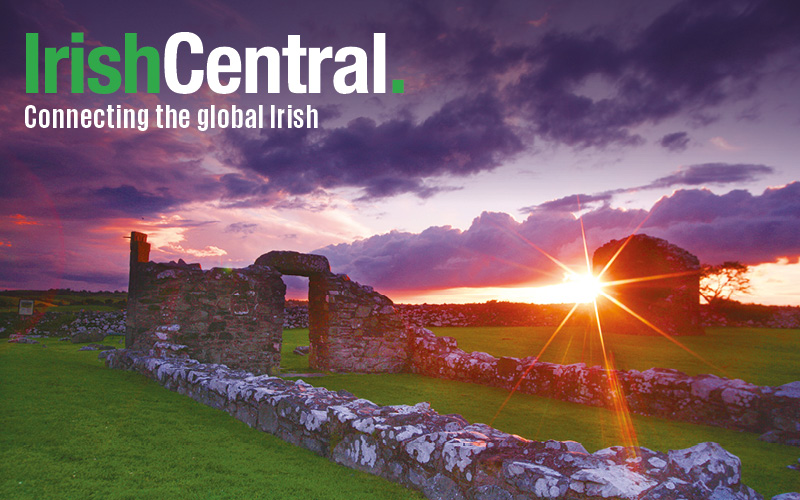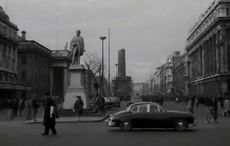| The flowers of Donegal |
They couldn’t keep me out of the fields. By mid-May the flowers were out in Donegal and the trees had a new set of summer leaves, turning the land outside my home into the greatest adventure playground ever built.
I could hardly wait to be out in it. Each morning I was out of bed and through the kitchen and into the fields within 15 minutes. I would barely offer a word before leaving. It was as if I was being pulled by some irresistible force.
My home was built on the edge of a wide lough. Called Loch Súilí, from the Irish meaning lake of shadows, it was home to sea birds, swans, dolphins and migratory geese, and it hummed with a demonic energy that pulled you toward it like a homing bird.
Every few minutes the light changed, which meant the lough changed, which is how it got its name. Shadows fell and lifted from minute to minute, clouds bigger than cathedrals sailed by.
You could watch the rain showers fall on the far peninsula and have enough time to get home before they reached you.
Up on the sand breakers, when the wind was up, you could be blown off your feet by the sudden gusts that carried sea air with a hint of salt in them. Seagulls would whirl or dive overhead, and the morning would open before me like a canvas sail.
Sometimes I’d bring a friend; sometimes I’d spend the day with my Scottish terrier. I’d stay out until I was famished and I wouldn’t return until I was called. I was in search of something then, life probably.
People have lived by that wide lough for millennia. Early Iron Age fortifications dating back as far as 7000 B.C. mean that children were playing along its banks when Cleopatra was a child.
I was just the latest wide-eyed buachaill with shells in my pocket kicking around the hollow pools filled with barnacles and sea life when the tide was out.
There’s a feeling you get when you see a salmon leap on its way up river. That brilliant flash of silver breaking the surface that makes your heart skip too.
That’s why I was out and about in that landscape, because anything could happen -- from the magnificent whooshing sound of swans in flight to the high lonesome calls of seabirds as dusk fell.
This was my childhood. I didn’t realize it at the time but I was being instructed.
That landscape was opening my heart and my head. I took it all in. I wandered through it wide eyed with my internal camera always on. Because the heady opulence of that landscape contrasted so sharply with the familiar privations of a certain kind of Irish childhood, I rarely wanted to go home.
It fascinated me, that contrast. Outside was teeming with possibility, but inside the rhythms of our home life were so predictable that that you could set your watch by our daily observances.
Morning was toast and marmalade and cereal and tea and cigarettes for the adults. Lunch was one of the Irish staples served with potatoes and two sides. Tea was served at four o’clock with the solemnity of a Buddhist call to prayer. Conversation didn’t really happen between us, because a light had gone out of our home with my mother’s early passing, and it never really rekindled.
Fourteen miles away in Derry they were shooting each other. The nightly news was a recitation of atrocities, couched in language that had become numb though the repetition of too much horror.
How, I often wondered, could a people who lived in such an epic landscape, a place of such utter grandeur, have found themselves imprisoned by so much deadening tedium?
How could you reconcile the inexpressible mystery of that otherworldly landscape with the stifling domestic arrangements of so many Irish homes?
Who were we really? I mean, what kind of people were we that we could live in one place and behave as though we lived in another? And when did the disconnect happen between where we lived and how we expressed ourselves?
As a boy I felt as though I’d be given a map, a key and a compass to a world that no one could see, or had stopped seeing. Not everyone knew how to get there, I discovered, so I’d look for the ones with its weird light in their eyes.
Ireland, once you come to know it, slowly makes its home inside you. If you carry it there the wisest thing you’ll ever do is let it speak.




Comments